Search results, if found, will automatically update as terms are selected. If no results are displayed, please revise your search terms.
Filter By:

Jianjun Wu, PhD
Assistant StaffLerner Research Institute, Cleveland ClinicMemberImmune Oncology ProgramCase Comprehensive Cancer CenterEmail: WUJ9@ccf.org
We are interested in understanding the fundamental mechanism of innate immunity and its impact on adaptive immunity, inflammation and cancer. We are currently employing multifaceted approaches and mouse disease models to uncover the novel immunostimulatory or immunosuppressive mechanisms of cGAS-STING pathway in antitumor immunity and autoimmunity. The knowledge gained from these studies will be applied to guide the development of new immunotherapies for cancer and inflammatory diseases.
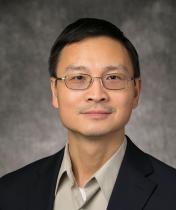
Tsan Sam Xiao, PhD
ProfessorDepartment of PathologySchool of MedicineMemberDevelopmental Therapeutics ProgramCase Comprehensive Cancer CenterMemberCenter for AIDS ResearchSchool of MedicineMemberCleveland Center for Membrane and Structural BiologyEmail: tsan.xiao@case.edu
Phone: 216.368.3330
My research focuses on structural and function of gasdermin family members in pyroptosis and inflammatory cytokine secretion, Molecular mechanisms of inflammasome activation during viral infection such as SARS-CoV-2, and Activation and substrate recognition by inflammatory caspases in health and disease.

Liangqi Xie, PhD
Assistant StaffCancer BiologyLerner Research Institute, Cleveland ClinicMemberCancer Imaging ProgramCase Comprehensive Cancer CenterEmail: xiel2@ccf.org
We are interested in using high-resolution microscopy and high-throughput genomics to understand genome regulation in human development and diseases.
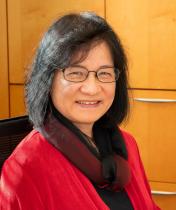
Wen-Cheng Xiong, MD, PhD
Riuko and Archie G. Co ProfessorDepartment of NeurosciencesSchool of MedicineEmail: Wen-Cheng.Xiong@case.edu
Phone: 216.368.4865
I study molecular mechanisms underlying neural development, neuro-degeneration, and bone homeostasis.
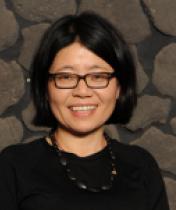
Rong Xu, PhD
Professor of Biomedical Informatics, DirectorCenter for AI in Drug DiscoverySchool of MedicineMemberCancer Genomics and Epigenomics ProgramCase Comprehensive Cancer CenterSchool of MedicineEmail: rxx@case.edu
Phone: 216.368.0023
We are interested in developing innovative artificial intelligence, natural language processing, data mining, machine learning, pattern recognition, graph theory, systems biology, knowledge representation and engineering, ontology and other computational algorithms to automatically understand genetic causes of diseases, identify candidate drugs/compounds to treat diseases, elucidate how environmental factors contribute to diseases, and conduct health outcomes research.
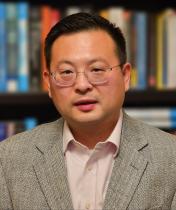
Sichun Yang, PhD
ProfessorDepartment of NutritionSchool of MedicineProfessorCenter for Proteomics and BioinformaticsSchool of MedicineProfessorDepartment of PharmacologySchool of MedicineProfessorDepartment of Physiology and BiophysicsSchool of MedicineMemberMolecular Oncology ProgramCase Comprehensive Cancer CenterEmail: sichun.yang@case.edu
Phone: 216.368.5793
My research focuses on mechanistic studies and therapeutic development for ER-positive breast cancer.
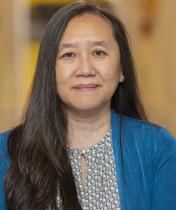
Vivien C. Yee, PhD
Associate ProfessorDepartment of BiochemistrySchool of MedicineDirector of Undergraduate Programs and Vice Chair for EducationDepartment of BiochemistrySchool of MedicineAssociate ProfessorDepartment of PharmacologySchool of MedicineMemberMolecular Oncology ProgramCase Comprehensive Cancer CenterEmail: vivien.yee@case.edu
Phone: 216.368.1184
I research the determination of protein molecular structure using X-ray diffraction and correlation with function.
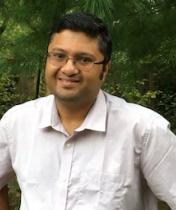
Dhananjay Yellajoshyula, PhD
Assistant ProfessorDepartment of NeurosciencesSchool of MedicineEmail: Dhananjay.Yellajoshyula@case.edu
Our lab focuses on understanding the cellular and transcriptional mechanisms regulating myelination and the extra cellular matrix during development and their role in disease and injury.
Dhananjay "Dan" Yellajoshyula's Biography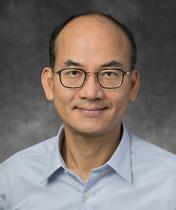
Edward Yu, PhD
ProfessorDepartment of PharmacologySchool of MedicineMemberCleveland Center for Membrane & Structural BiologyEmail: ewy5@case.edu
Phone: 216.368.5358
I investigate the structural biology of multidrug resistance trasnporters and bacterial metabolite transporters.

Jennifer Yu, MD, PhD
Associate ProfessorDepartment of Molecular MedicineSchool of MedicineCo-LeaderDevelopmental Therapeutics ProgramCase Comprehensive Cancer CenterEmail: yuj2@ccf.org
Phone: 216.444.0852
I focus primarily on molecular mechanisms driving glioblastoma cancer initiation and progression.

